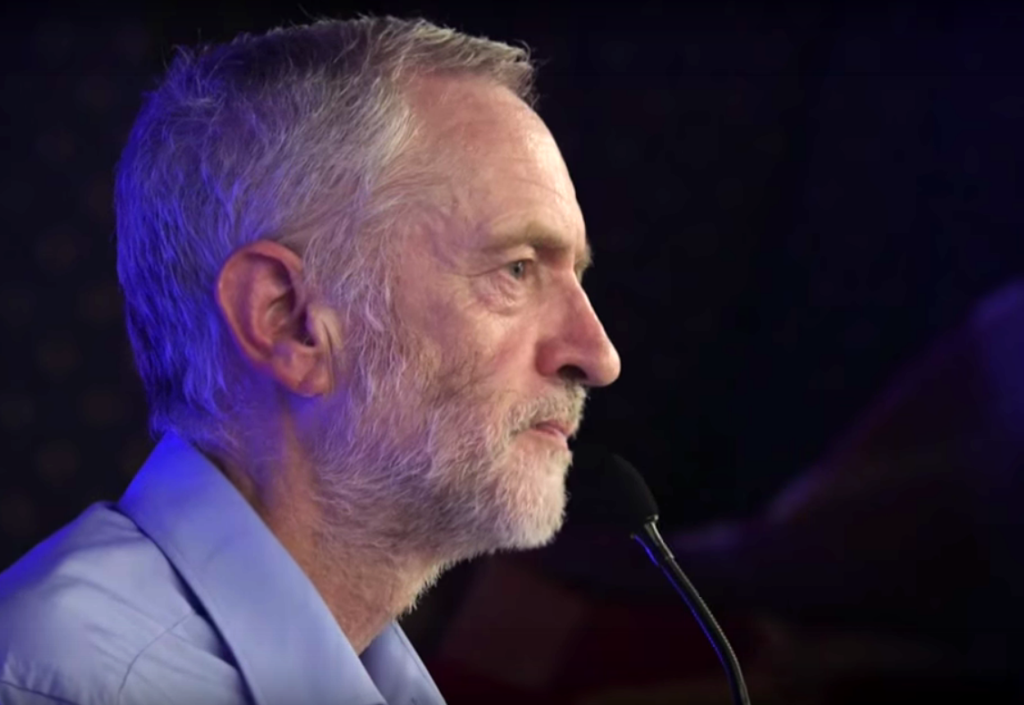Originally published at MintPress News.
LONDON — On Saturday, the UK’s Labour Party elected Jeremy Corbyn to be its newest leader, and many in the media described the event in nightmarish terms, even comparing Corbyn to ISIS and Donald Trump. In reality, Corbyn has far more in common with the Labour Party’s socialist roots, and modern anti-austerity movements, then either an outspoken, racist billionaire or any religious extremist.
Adam Johnson, a journalist who contributes to Fairness and Accuracy In Reporting, tweeted out five outrageous headlines he’d seen in the wake of Corbyn’s election, all from independent media outlet The Daily Beast:
let's play "spot the agenda". This week: The Daily Beast and Jeremy Corbyn.
(This is not edited for effect) pic.twitter.com/BqTSLAtDa6— Adam Johnson (@adamjohnsonCHI) September 13, 2015
Ranging from calling Corbyn “The Labor Party’s Two Word Suicide Note” and “Lefty Christmas” to “Hezbollah’s Man In London: The Improbable Rise Of Wild-Eyed Jeremy Corbyn,” Johnson wryly commented that readers could “play ‘spot the agenda.’” The Daily Beast did later change its most extreme headline, which originally read, “What Corbyn, Trump, and Radical Islamists Have In Common,” to “The Daily Hate: Corbyn, Trump, And The New Politics Of Spite.”
However, the article by Maajid Nawaz still compares Corbyn’s election with Trump, anti-Muslim racists in Europe, religious extremist terrorism, and even the BDS Movement, arguing that they all share the following common trait:
[W]hat many of these movements’ followers share is the desire not just to disagree with their opponents, but to delegitimize, dehumanize, and ostracize those with whom they disagree.
Even outside of The Daily Beast, other outlets were quick to criticize Corbyn. The UK’s far-right Daily Expresscalled him “the most absurd figure ever to win the leadership of a major political party in British history” andthe Washington Post said called him “radically anti-American.” John Cassidy, staff writer at the liberal magazine The New Yorker said he was “stuck in a time warp, refusing to budge” with “little aptitude for, or even any inclination toward, the messy business of governing” despite his decades in elected office.

The real Jeremy Corbyn
Who is Jeremy Corbyn, and how has he inspired such horror from the media? Before his election to party leader, Corbyn spent over 30 years as a member of parliament, where he frequently opposed his party’s more moderate decisions. His controversial reputation stems largely from his lengthy career of resistance to the liberal Labour Party’s capitulation and compromise with the political right, similar to the gradual rightward shift that has taken place in America’s Democratic Party. Unlike most elected politicians in the West, Corbyn is anti-imperialism and anti-Zionist.
In addition to fighting against austerity-driven privatization and cuts to public services and England’s social safety net, as an MP Corbyn was an outspoken supporter of Palestinian liberation, Amnesty International, LGBT rights, and nuclear disarmament, and at the same time passionately opposed to foreign wars and practices that promote climate change.
Writing In The Guardian, Pablo Iglesias, leader of Spain’s Podemas party, placed Corbyn’s election in the larger context of a growing European movement against austerity:
If Podemos is the best expression of the identity crisis in Spanish socialism, Jeremy Corbyn is the best expression of the identity crisis in the British Labour party. … Increasingly socialists are joining us to defend democracy, to fight against austerity and inequality. We can only say: welcome, comrades. Let’s walk together.
David Millward, US Correspondent for The Telegraph, reported that U.S. presidential candidate Bernie Sanders sent his congratulations to Corbyn on his election, noting that the two have risen to popularity based on similar promises of opposing big business in politics.
Owen Jones, a columnist for The Guardian, wrote that truly liberal or socialist voters felt left out after the Labour Party and others on the UK’s Left “accepted the underlying principles of austerity” leaving them with “little to say,” leading to a grassroots movement to elect Corbyn.
Jones added:
A vacuum was left, and the Corbyn phenomenon filled it. He offered an optimistic hopeful vision that resonated, and his rivals failed to do so. The heirs of New Labour have a lot of soul-searching to do, and it will mean rejecting the negativity and nihilism represented by their champions in the media.